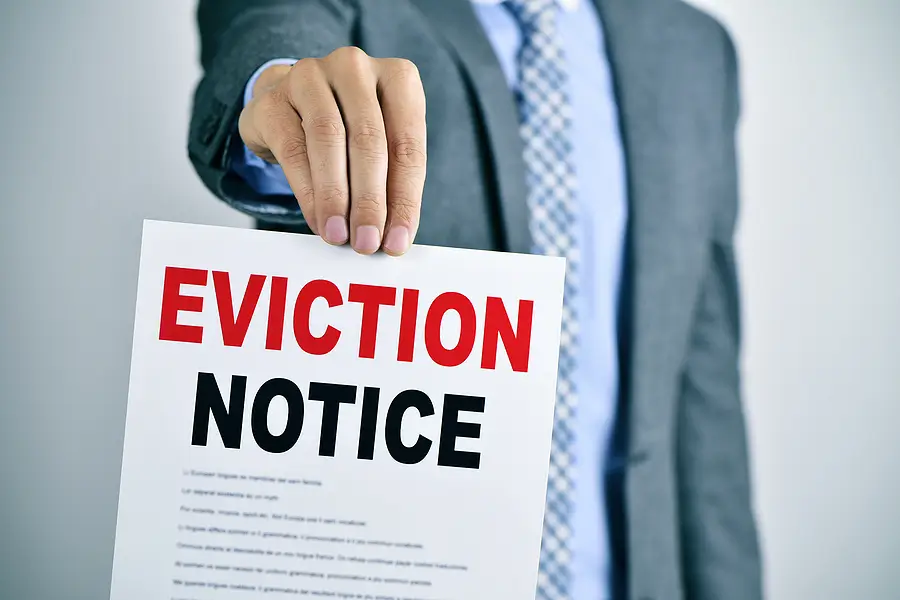Evicting a tenant is never simple, and even a small mistake when delivering an eviction notice can slow down or stop the process completely. Denver landlords must follow strict legal rules to ensure everything is done correctly. Otherwise, they could face court dismissals, money losses, or even legal trouble.
If a tenant fails to pay rent, violates a fixed-term lease, or causes other serious issues, landlords must serve the eviction notice correctly. This is the first step in reclaiming a rental property. Here’s how to do it properly.
How to Deliver an Eviction Notice Properly
Serving an eviction notice correctly ensures that the eviction process remains valid under Colorado law. Here’s a step-by-step guide for landlords in Denver:
Draft a Legally Compliant Eviction Notice
An eviction notice must include the tenant’s full name, the rental property address, the reason for eviction (such as unpaid rent, a criminal act, or lease violations), a notice period, and the landlord’s signature.
Errors in lease terms or the lease or rental agreement can lead to court hearing date delays or the dismissal of the eviction lawsuit.
If the lease expires and the landlord does not wish to renew, they must follow the proper procedure to terminate tenancy under Colorado eviction laws. Certain exempt residential agreements, such as employer-provided housing, may have different legal requirements.
Choose a Legally Acceptable Delivery Method
Landlords can deliver an eviction notice in three legally accepted ways. The most direct method is personal service, where the notice is handed directly to the tenant, ensuring immediate delivery. If the tenant is unavailable, the eviction notice can be posted on the rental unit door in a visible spot.
Another option is sending it by first-class mail with a return receipt, which provides proof that the notice was sent, though this method may take longer. Proper delivery is crucial because mistakes can lead to delays in the formal eviction process or even the dismissal of the eviction case in court.
Document the Delivery Process
Keeping records of the written notice, including proof of delivery, helps if the tenant claims they never received it. A personal service receipt or a photo of the posted eviction notice can prevent disputes.
Hiring a property management company can help residential landlords ensure that the entire process follows Colorado eviction laws, reducing the risk of legal complications.
What Happens After Serving the Notice?
Once the eviction notice is delivered, the tenant has a short time to respond. If the tenant pays what they owe, they can stay in the rental unit. If the issue concerns lease violations, they may fix it before the deadline. But if the tenant fails to do so, the landlord must start the eviction lawsuit process in court.
The court hearing can take weeks or even months, especially if the tenant fights the eviction notice. During this time, residential landlords cannot forcefully remove the tenant, change the locks, or shut off utilities—these actions break Colorado housing laws. If the court rules in the landlord’s favor, they will receive a writ of restitution, allowing law enforcement to remove the tenant legally.
Landlords may also request a money judgment to recover unpaid rent and damages. This might involve extra filing fees and service fees.
If a tenant leaves behind personal belongings or property, the landlord must follow legal steps before throwing anything away.
Tenant Rights and Legal Considerations
Although landlords have the right to evict tenants, they must follow Colorado eviction laws and respect tenant rights. If an eviction notice is not served correctly or the formal eviction process is not followed, the tenant can challenge the case in court. Forcible entry or kicking a tenant out in retaliation for reporting unsafe conditions can invalidate the eviction lawsuit.
Avoid Costly Mistakes: Follow the Right Steps for a Legal Eviction
Evictions can be stressful, but following the legal process prevents unnecessary court costs and delays. Properly serving an eviction notice, documenting everything, and complying with Colorado law helps residential landlords protect their rental properties while ensuring a smooth eviction process in Colorado.
If managing evictions feels overwhelming, Mavi Unlimited can handle the formal eviction process for you. We ensure that every step—from serving the eviction notice to the court date—is handled legally and efficiently.
Contact us today to protect your investment and simplify your property management needs.


